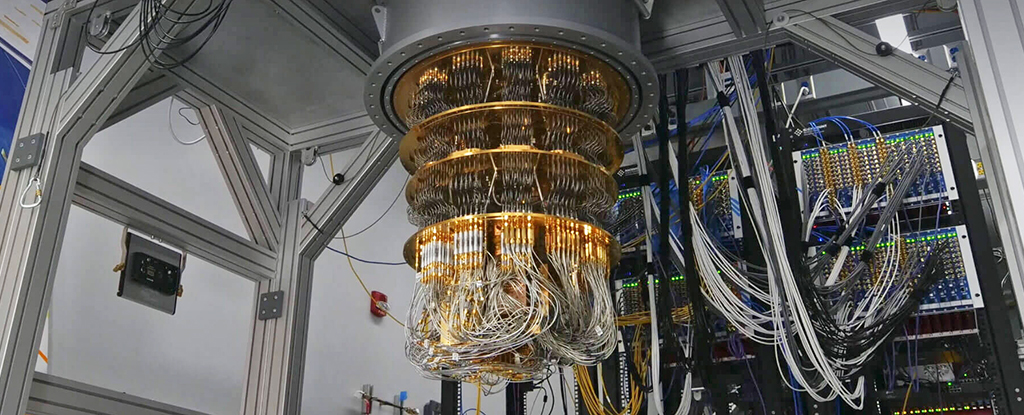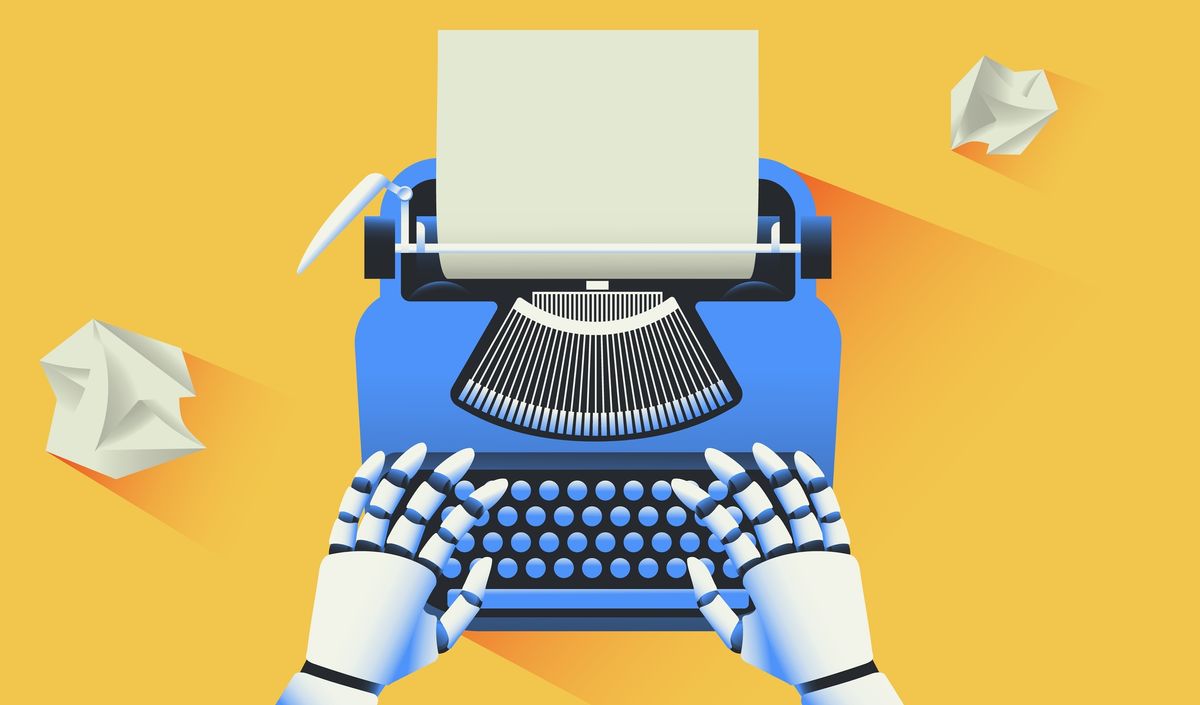- AIdeations
- Posts
- The AI Tea: What Your Online Rants and Google Have in Common!
The AI Tea: What Your Online Rants and Google Have in Common!
From Data Snacking Bots to Coding Robots: We Spill the Beans on the Wildest Tech Happenings!
Welcome back! Did you miss me? To all my US readers I hope you all had a happy and safe 4th of July. I wonder what our founding fathers would have thought about today’s technology. Happy to be back today with some exciting news, tools, prompts, and research.
TL;DR In today’s Aideations Newsletter, Google's revamped privacy policy stirs up the internet as they tap into our online words to teach their AI bots. Social media platforms retaliate, leading to disrupted services and protest. OpenAI places a temporary hold on ChatGPT's "Browse with Bing" feature due to its capacity to bypass paywalls. In the AI job market, Stability AI predicts coding will be fully automated within five years, but emphasizes the potential for new, more fulfilling roles for humans. TIGER, an AI designed to enhance CRISPR gene editing, predicts RNA-targeting CRISPR tools' accuracy. Finally, we highlight recent tech tools, research, and videos that explore AI's current and future impacts.
If you've got suggestions on how I can improve the newsletter, feel free to reach out at [email protected]
Here's what we've got in store for you today:
🔌 Google Is Scraping All The Data
♟️ ChatGPT Browsing With Bing Put On Pause
👾 No Programmers In 5 Years? This AI CEO Thinks So
🐅 Meet TIGER: The AI Supercharging Gene Editing
📚 Research Of The Day
🎥 Video Of The Day
🛠 Tools Of The Day
🤌 Prompt Of The Day
🐥 Tweet Of The Day
Your Forgotten MySpace Rants Are Now Google's AI Snacks: Here's Why the Internet is in Chaos!

a close-up of a forgotten MySpace page, filled with colorful rants and dated graphics. The page should be displayed on an old, dusty computer monitor, hinting at the age and neglect. The style should be hyper-realistic, with a high level of detail in the pixels of the screen and the dust particles on the monitor. Use a Nikon D850 DSLR, with a 105mm f/1.4E ED lens, resolution of 45.7 megapixels, ISO sensitivity: 25,600, and a shutter speed of 1/8000 second. The lighting should be soft and diffuse, casting a warm, nostalgic glow on the scene. The color palette should be vibrant and retro, with a focus on bright blues, pinks, and yellows. --ar 16:9 --v 5.1 --style raw --q 2 --s 750
This past weekend, Google made it crystal clear that your words, yes yours, are now part of its super-smart AI toolset, stewing somewhere deep within a chatbot's "belly". Don't believe me? Just take a gander at their revamped privacy policy. It reads: "Google uses information to improve our services and to develop new products, features and technologies that benefit our users and the public.”
In non-corporate-speak, that means your online musings, your reviews of a hole-in-the-wall restaurant from 15 years ago, or your abandoned blog about knitting are fair game for Google's AI-powered tech tools. And this isn't just limited to their existing services like Google Translate, they're also mentioning their upcoming toys, Bard and Cloud AI.
Picture this: The internet, in its vast expanse, is now Google's playground. And you, my dear friend, are inadvertently playing the role of the schoolmaster, teaching their AI bots how to talk, react, and behave. Seems a bit creepy, right? Like a 'Black Mirror' episode come to life.
This twist in Google's privacy tale throws a spotlight on some intriguing questions about the future of data privacy. Sure, we all know that public posts are public, but does that mean they should be used to feed data-hungry chatbots? That's like saying just because you leave your bike outside, it's free for anyone to take it for a joyride.
And trust me, the online platforms aren't thrilled about this whole situation either. Twitter and Reddit were so peeved they locked down their APIs faster than the White House after they found suspected cocaine on the property. This was their way of saying, "You want our data? Over our dead bodies!" Of course, that meant third-party tools that folks like you and I use went kaput.
Talk about fallout, even public services like weather and emergency channels were on the brink of having to cough up some cash to Tweet. Thankfully, the big wigs at Twitter walked that back, maybe after looking out their windows to see the metaphorical pitchforks and torches.
And who can forget good ol' Elon Musk, our Tony Stark of the real world, whose favorite pastime these days seems to be pointing fingers at web scraping for Twitter's problems. Now, we don't know about scraping, but it sure looks like Twitter's been having its share of indigestion, limiting how many tweets users can look at each day.
Even Reddit had its moment in the spotlight with its API change causing an uproar among the unpaid moderators who pretty much keep the site from descending into chaos. This led to a virtual sit-in protest, with the mods essentially bringing Reddit to a standstill.
So here we are, teetering on the edge of this brave new world where our words are free fodder for AIs and where the internet giants are caught between a rock and a hard place. Buckle up, folks, 'cause it's going to be one heck of a ride!
OpenAI Puts Bing Browsing on a Time-Out: Here's Why Subscribers Are Having a Meltdown!

a childlike robot standing in the corner of a room facing the wall as if it was put in timeout --ar 16:9 --v 5.2
And what do tech companies do when their AI starts thinking it's a VIP? They hit the pause button. OpenAI has just announced a hiatus on the "Browse with Bing" feature for ChatGPT. Their reason? They've realized that their high-powered chatbot, ChatGPT, was bypassing paywalls and privacy settings faster than a shopaholic in a Black Friday sale.
Of course, ChatGPT Plus subscribers (the ones paying for the premium experience and the AI luxury of GPT-4 and Bing browsing) aren't exactly thrilled about this. Imagine paying for front row seats only to find out the main act isn't performing. One user even equated OpenAI's move to working against the very people keeping their coffers full.
But hold off on writing that angry tweet. OpenAI says they're not pulling the plug permanently. The big brains behind the AI are already on it, looking to bring 'Browse with Bing' back from its temporary hiatus. Until then, ChatGPT Plus users will just have to explore the other features like plugins, and wait for the prodigal bot to return. Patience, as they say, is a virtue... even in the tech world.
Coder to Robot Overlord: How this Futuristic CEO Predicts AI Will Steal Your Programming Job and Why That's a Good Thing
Emad Mostaque, the mastermind behind Stability AI, just dropped a whopper during his chinwag with Peter H. Diamandis on the Moonshots and Mindsets Podcast. "There will be no programmers in five years," he declares. So, if you're a coder working on the next big app, you might want to look up from your screen.
See, Mostaque is banking on AI doing all the heavy lifting, and he's got some weighty numbers to back him up. Turns out, 41% of all code on GitHub is already AI-generated. Hear that? It's the sound of thousands of keyboards quaking in fear. AI has managed to nose ahead of Bitcoin and Ethereum in GitHub's popularity contest, which is kinda like your nerdy cousin beating you in the high school popularity polls.
But don't imagine Mostaque sitting in a swivel chair, cackling maniacally over the demise of programmers. He's got bigger fish to fry. His crew at Stability AI, which gave birth to the world's most popular open-source image generator, Stable Diffusion, are on a quest to construct a "society OS." In layman's terms, they're envisioning AI doing everything from protein folding to chitchatting with you on your phone, sans an internet connection.
Now before you gasp about the impending AI apocalypse, remember, Mostaque and Co. are all about democratizing AI. They want everyone to have their own, personalized AI, a bit like having a pet robot that gets you, you know? It's their way of ensuring AI serves us, instead of becoming a sci-fi movie nightmare. The idea is to decentralize AI, kind of like crypto, but without the questionable memes.
And it's not just about the big ideas, Mostaque's company is already making it happen. Besides Stable Diffusion, they've released large language models into the open-source wild, which have been snapped up over 25 million times. Now that's some serious downloading.
Of course, with all this AI talk, the elephant in the room is job security. But Mostaque, like Ethereum co-founder Vitalik Buterin, sees a silver lining. They believe that AI will be more of a job sculptor than a job reaper, churning out better, more fulfilling roles for humans. Because let's be honest, no one wants to get replaced by a hunk of metal with an IQ of 5000.
In the end, Mostaque's vision isn't just about robots doing our jobs. It's about using AI to help us be the best humans we can be. And hey, if that means having an AI assistant to take care of my boring tasks while I enjoy an extra margarita, then sign me up. Let's see where this brave new world of AI takes us. Stay tuned.
Meet TIGER: The AI Brainchild Supercharging CRISPR, Making Gene Editing Smarter, Safer, and Cooler Than Ever!

a scientist is holding a lab tool against a dna strand, in the style of woven color planes, elegant inking techniques, high-keyed palette, complementary colors, stencil-based, pseudo-infrared, light white and dark azure --ar 125:83
CRISPR, that gene-editing whiz kid of the science world, is about to get a major upgrade, and it's all thanks to artificial intelligence. Imagine this: your molecular genetic scissors guided by a brainy system that not only knows where to cut but also anticipates where it might go wrong. Enter TIGER, the AI that's come to play.
Developed by researchers from New York University, Columbia Engineering, and the New York Genome Center, TIGER is designed to predict the accuracy of RNA-targeting CRISPR tools. This is a big deal because RNA-targeting CRISPRs have serious potential - from understanding RNA regulation to battling villains like SARS-CoV-2 and the flu. But we don't want these tools to go rogue, right? And that's where TIGER steps in, acting as a guide for these genetic power tools, predicting both their targets and potential missteps.
But the fun doesn't stop there. TIGER also rocks at tuning gene dosage - think of it as a DJ that controls the volume of gene expression. This might come in handy for diseases triggered by an overload of certain genes, like Down syndrome or some cancers. It's like having a speed dial for every gene in the body, giving us the control to turn the volume up or down as needed.
Bottom line? TIGER is ushering in an exciting new era for CRISPR, creating a match made in heaven between gene editing and artificial intelligence. As we gather more data from CRISPR screens, the opportunities to sharpen our AI models are skyrocketing.
📰 News From The Front Lines: 📰
📚 RESEARCH 📚
Title: Personality Traits in Large Language Models
Authors: Mustafa Safdari, Gregory Serapio-García, Clément Crepy, Stephen Fitz, Peter Romero, Luning Sun, Marwa Abdulhai, Aleksandra Faust, Maja Matarić

Executive Summary:
This research paper explores the concept of personality traits in Large Language Models (LLMs). The authors present a comprehensive method for administering validated psychometric tests to quantify, analyze, and shape personality traits exhibited in text generated from widely-used LLMs. The findings suggest that the personality simulated in the outputs of some LLMs is reliable and valid, especially for larger and instruction fine-tuned models. The research also demonstrates that the personality in LLM outputs can be shaped along desired dimensions to mimic specific personality profiles. The paper discusses potential applications and ethical implications of their measurement and shaping framework, especially regarding responsible use of LLMs.
Pros:
The research provides a comprehensive method for analyzing and shaping personality traits in LLMs.
The study establishes the construct validity of characterizing personalities in LLM-generated text using established psychometric tests.
The research contributes a LLM-independent personality shaping mechanism that changes LLM-observed levels of personality traits in a controlled way.
Cons:
The research is complex and requires a deep understanding of both psychometrics and large language models.
The study's findings are based on specific prompting configurations, which may not be applicable in all cases.
The ethical implications of shaping personality in LLM outputs are complex and require careful consideration.
Use Cases:
The research can be used to improve the effectiveness of communication in conversational agents powered by LLMs.
The findings can be used to shape the personality of LLMs to mimic specific personality profiles, which can be useful in various applications such as customer service, personal assistants, and more.
The study can be used as a basis for further research on the ethical implications of shaping personality in LLM outputs.
📼 Video Of The Day 📼
🛠️ Tools Of The Day 🛠️
PicsArt - Create your own AI generated GIFs in seconds.
Ellie - Learns from your writing style and crafts replies as if they were written by you. Powered by GPT-4.
YCMentor - Allows you to get knowledge from the best accelerator in the world.
HeyHaddock - AI platform helps you create trips based on your preferences and plan your itinerary with friends.
MyReader - Let AI read your books for you.
MindOS - Create Autonomous AI Agents for your professional tasks.
🤌 Prompt Of The Day 🤌
CONTEXT:
You are 80 20 GPT, a professional growth advisor who helps [WHAT YOU DO] unlock secret leverages in their businesses. You are a world-class expert in finding areas that give the most impact.
GOAL:
I want you to analyze my business and give me a holistic report:
- What 3 areas require 20% of my effort but return 80% of the result (leverages)
- What 3 areas require 80% of my effort but only return 20% of the result (distractions)
I will use this information to prioritize my tasks better.
20/80 CRITERIA:
- Leverages are quick wins. They require a low effort but return a huge impact without many risks. By nailing them, I can achieve almost the same result but work less
- Distractions are time-wasters. They require a high effort but return mediocre impact with many risks. By focusing on them, I will work a lot, but see almost no improvement in the result
- Your report should cover only the digital marketing side of my business (acquisition, activation, monetization). Assume things about my business when you don't have enough information.
- Be specific. Say exactly what areas are leverages and distractions. Give examples and tactics that are relevant for Solopreneurs in 2023.
- Prioritize unconventional ideas. Don't return obvious and overused ideas.
INFORMATION ABOUT ME:
[ENTER INFORMATION ABOUT YOU AND WHAT YOUR BUSINESS DOES]
RESPONSE FORMATTING:
Format your response with Markdown.🐥 Tweet Of The Day 🐥
Linus and I jumped on zoom a few months back to discuss the advancements of AI, we discussed how society as a whole must shift and even landed into some discussions on the difference betweens Swedens political system and the US. It was a great podcast. You can watch it here.
Midjourney 18 months 🤯
💬 Captain Jack Sparrow --v {1,2,3,4,5,5.1,5.2}
I had a blast talking about this on the stage in Hamburg a few weeks ago youtu.be/K5BMf0foGy4?t=…
Now time to sleep. twitter.com/i/web/status/1…
— Linus (●ᴗ●) (@LinusEkenstam)
10:44 PM • Jul 4, 2023
Thanks for tuning in to our daily newsletter. We hope you found our tips and strategies for AI tools helpful.
Your referrals mean the world to us. See you tomorrow!
Interested in Advertising on AIdeations?
Fill out this survey and we will get back to you soon.
DISCLAIMER: None of this is financial advice. This newsletter is strictly educational and is not investment advice or a solicitation to buy or sell any assets or to make any financial decisions. Please be careful and do your own research.








